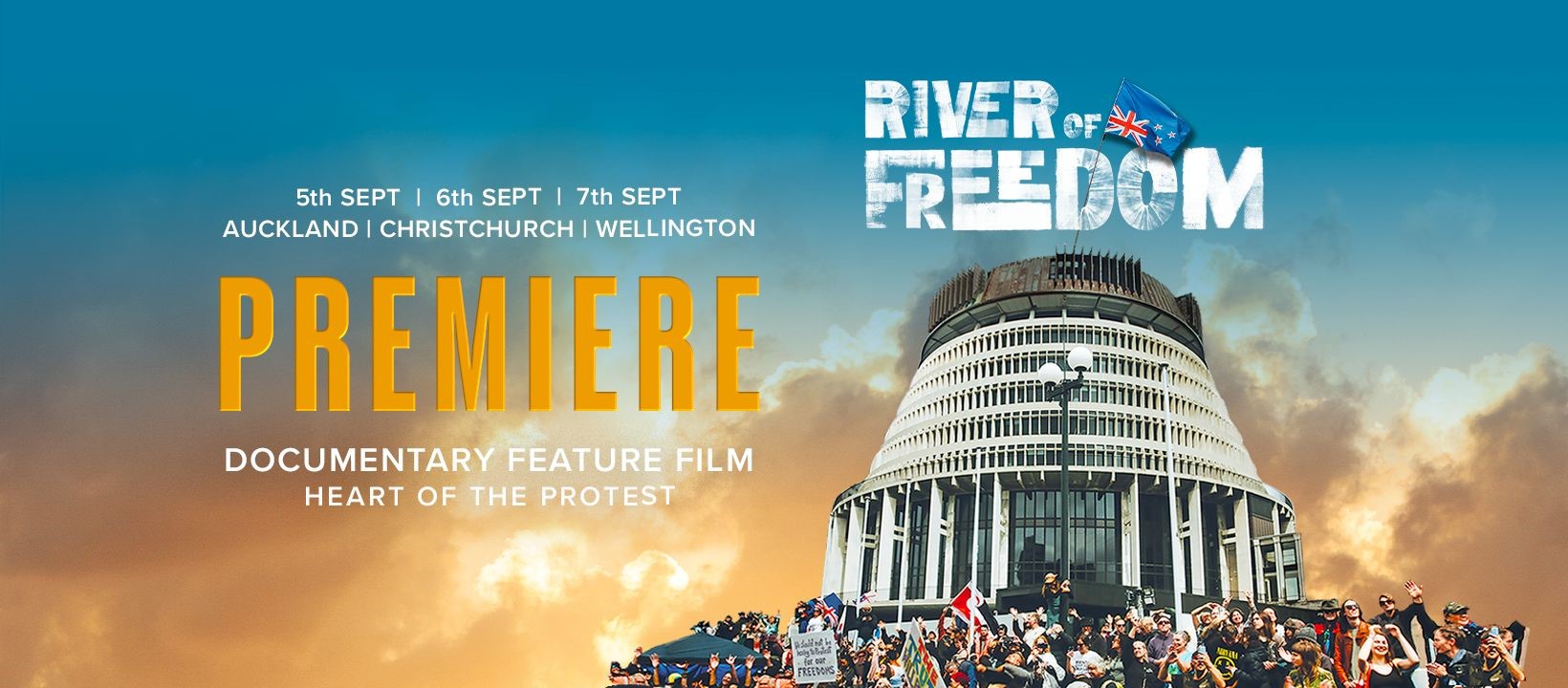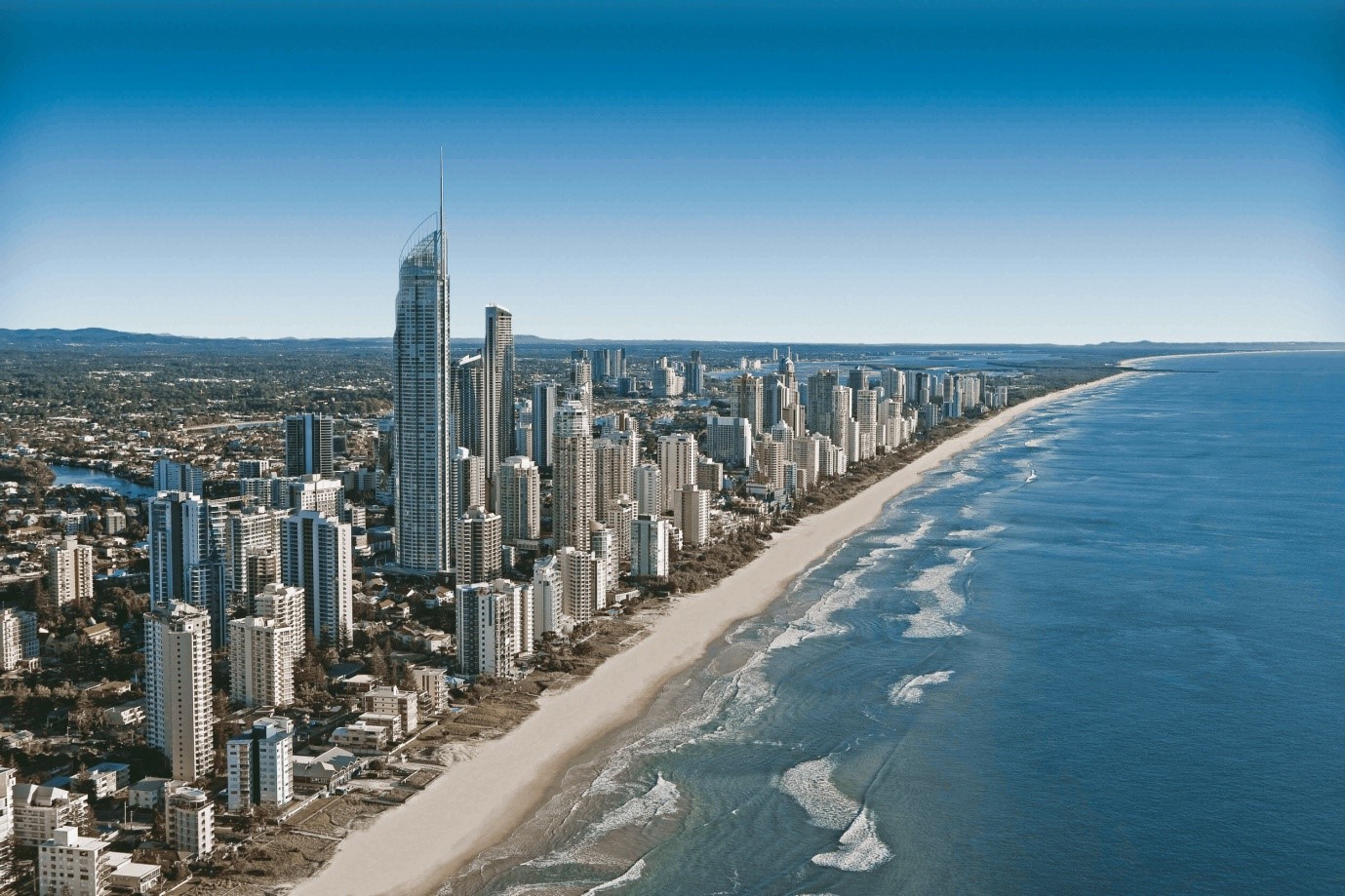and what investors can do to protect their wealth.
‘A nation of sheep will beget a government of wolves.’
—Edward R. Murrow
Two documentary films brought my tears to my eyes these past few weeks.
This is unusual. I’m a tough investor. I’ve bought property and shares around the world. And won my fair share of painful challenges.
The first film was To Singapore, With Love. It profiles those who have been exiled from the island state for their political views. The film is on YouTube but banned in Singapore.

Source: River of Freedom, Facebook
The second, River of Freedom, is a New Zealand feature documentary. It profiles the protests against Covid-19 restrictions and vaccine mandates. In some cases, these mandates meant people lost their jobs, livelihoods, and homes.
While there are two sides to every story, both films leave the viewer with a sense of people’s rights being trampled by the blunt machinery of the state. Both leave questions on the real nature of democracy. And the integrity of the media in both countries.
More alarming is the alleged slandering and cancellation of individuals by media outlets. Particularly when these outlets are, in part, often funded by the state. Even a politically naïve reader may sense that many of the journalists within legacy media have a pro-establishment bias.
But the people do speak in the end.
The election result in New Zealand on October 14th punished the incumbent government. At the current count, Labour has gone from 46 electorate wins in 2020 to just 17 in 2023. Their votes cratered from over 1.4 million in 2020 to just over 600,000.
A friend of mine, affected by the MIQ lottery system, said: ‘People don’t forget what Labour did to us.’
Meanwhile, the New Zealand First Party, which has policy for independent inquiries into the Covid-19 response and media independence, almost doubled its vote to ~145,000.
To be fair, Covid was a fear event. No leader would have got everything right. But in our own fear, we became a nation of sheep. And the government became wolves.
We have seen what a tide of control means for freedom and democracy.
For investors, it has also meant a new raft of financial risks
These have appeared globally.
The de-banking of Nigel Farage in the UK for his views and the freezing of bank accounts for the truckers’ Freedom Convoy protest in Canada brought this home to many observers.

Freedom Convoy protest, Canada. Source: Wikimedia Commons
The 2023 election in New Zealand may have also seen a prosperity crisis averted.
One platform from the Green Party was a wealth tax. While this was not Labour policy, the risk of a Labour/Green coalition meant a wealth tax became a possible risk.
I don’t dispute that inequality has been left unchecked in New Zealand for too long. Nor do I dispute that people with less need more of a chance, especially in housing.
Yet I’m also sure that frightening away the prosperous or dampening their entrepreneurial spirit would only leave less opportunity to help others up.
Casual conversations with 15 high net-worth investors (with assets over $5 million) suggested that 12 would leave the country within a year should a wealth tax become likely.
While some have European passports, the immediate ability to resettle in warmer and richer Australia was the most likely scenario.

Gold Coast, Australia. While the country has a capital gains tax (excluding the family home), its Tax-to-GDP ratio is still ~5% lower than New Zealand.
Source: Pexels/Pixabay
Such plans would be devastating to our local wholesale wealth business. Likely we would need to pivot to provide services to help individuals offshore.
Clearly, we have seen levels of risk to people’s freedom and prosperity heightened since 2020.
When it comes to risk, the concepts of diversification, liquidity, and mobility provide protection.
If you have all your money in one local bank, your diversification is slim.
If you have it spread across the world in global equities in different sectors, for example, your diversification is wide.
If all your money is tied up in local property, your liquidity is dependent on that market. Should an event like a natural disaster — or systemic risk such as a wealth tax — hit that market, you may face difficulty selling, at least at a decent price.
If all your money is held locally in one currency — for example, NZD — your mobility faces constraints. Whereas if you have facilities in other currencies, you have wider global mobility.
None of this is mentioned to frighten investors. Rather it comes back to the old adage in finance. The one free lunch is diversification. The escape route: liquidity and mobility.
There are always threats. And opportunities. But when the world you knew has become less benign and more risky, it can pay to have a plan.
We have a plan for our Wholesale Investors. Although today’s markets are turbulent, we have helped many diversify into robust international equities in their own global brokerage accounts. More information on this solution is available here.
Meanwhile, I encourage you to take a look at our Premium News Subscription, where we report on global investing in more detail. For today and tomorrow, we are offering a special opportunity to trial this from just $1.
Regards,
Simon Angelo
Editor, Wealth Morning
This article is the author’s personal opinion and commentary. It is general in nature and should not be construed as any financial or investment advice. Wealth Morning Managed Accounts are only available to Eligible Investors and Wholesale Investors (not to Retail Investors) as defined in the Financial Markets Conduct Act (2013).





Simon is the Chief Executive Officer and Publisher at Wealth Morning. He has been investing in the markets since he was 17. He recently spent a couple of years working in the hedge-fund industry in Europe. Before this, he owned an award-winning professional-services business and online-learning company in Auckland for 20 years. He has completed the Certificate in Discretionary Investment Management from the Personal Finance Society (UK), has written a bestselling book, and manages global share portfolios.